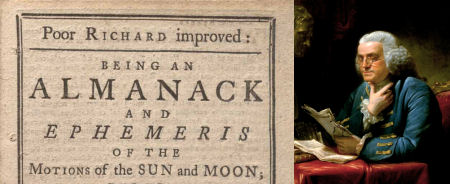Locale: San Francisco, California? Paris, France? Duluth, Minnesota? Milwaukee, Wisconsin?
Originator: Mark Twain? Horace Walpole? James Quin? R. Q. Grant? Lord Byron? Anonymous?
Question for Quote Investigator: Living in Menlo Park near San Francisco I have heard the following witticism credited to Mark Twain many times:
The coldest winter I ever spent was a summer in San Francisco.
The coldest winter I ever saw was the summer I spent in San Francisco.
I actually enjoy the weather here, so this saying always seemed implausible to me. Also, the San Francisco Chronicle once printed an article that cast doubt on the Twain attribution. Can you figure out who created this joke? Also, was the remark originally about SF or some other locale?
Reply from Quote Investigator: There is no evidence in the papers and speeches of Mark Twain that he ever made this remark about San Francisco. There is a letter discussed below from Twain in which he commented on a similar type of jest, but he expressed unhappiness with the weather of Paris and not San Francisco.
Top-flight researcher Stephen Goranson located the earliest known evidence of this joke-type in a letter written by Horace Walpole, a prominent literary figure and politician in England. Walpole attributed the remark to James Quin, a leading actor in London in the 1700s. This jest is distinct but it is closely related to the quip given by the questioner. The location of the cold weather was not specified. The letter was written during the summer of 1789 in July:1
Quin, being once asked if he had ever seen so bad a winter, replied, “Yes, just such an one last summer!”—and here is its youngest brother!
This comical observation and its ascription reached the attention of Mark Twain who mentioned it in a letter in 1880 while criticizing Parisian climate. The text of the letter is viewable at the authoritative Mark Twain Project Online:2
… for anywhere is better than Paris. Paris the cold, Paris the drizzly, Paris the rainy, Paris the Damnable. More than a hundred years ago somebody asked Quin, “Did you ever see such a winter in all your life before?” “Yes,” said he, “Last summer.” I judge he spent his summer in Paris.
Several fine researchers have noted the existence of this letter linking Twain to the quip about cold weather including Ralph Keyes,3 4 Fred Shapiro,5 and Barbara Schmidt.6
The modern phrasing of the saying was used by the beginning of the 1900s, but the initial target of the barb was not San Francisco. Instead, the joke was directed at a genuinely frosty locale: Duluth, Minnesota. The Duluth News-Tribune in 1900 recounted a version of the saying while using a belligerently defensive tone:7
One of these days somebody will tell that mouldy chestnut about the finest winter he ever saw being the summer he spent in Duluth, and one of these husky commercial travelers, who have been here and know all about our climate, will smite him with an uppercut and break his slanderous jaw. The truth will come out in time.
The above instance in 1900 used the word “finest” instead of “coldest”. In June 1901 in a Kentucky newspaper an employee of the weather bureau deployed a version of the saying that closely matched a modern template. Once again the weather in Duluth was the subject:8
In a recent conversation with Mr. R. Q. Grant, of the State College Weather Bureau, a Herald reporter learned that the life of the employes of the United States Weather Bureau service is one filled with interesting experiences. …
Later Mr. Grant was sent to Pike’s Peak, where he established the station now there. Another assignment was to Duluth, Minn., where he learned to appreciate rapid changes in temperature. He says the coldest winter he ever experienced was the summer he spent in Duluth.
Over a span of more than one hundred years many locations were substituted into this jest including: Milwaukee, Two Harbors, Grand Marais, Puget Sound, Buffalo, Minneapolis, and San Francisco.
Note that Mark Twain lived until 1910, so the expression was being used while he was still alive. Yet, the words were not attributed to him in any of the early instances. The first citation found by QI in which Twain’s name was invoked was dated 1928 and the subject was Duluth. The details are recorded further below.
Here are additional selected citations in chronological order.
Continue reading “Quote Origin: The Coldest Winter I Ever Spent Was a Summer in San Francisco”
